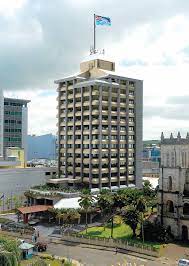
Governor and Board Chairman Ariff Ali stated that recent indicators support Fiji’s economy
returning to trend growth in 2024.
Consumption spending in the first two months of year remain positive, supported by increased tourism activity, higher remittance inflows and the rise in disposable income levels.
However, he says the pickup in investment activity has been comparatively slow, owing to a
combination of factors. Similarly, production in the resource-based sectors continue to note annual contractions due to industry-related issues.
Despite the strong growth in wages and salaries over the past year, Fiji’s labour market pool continues to be affected by higher emigration and the number of job vacancies has increased significantly, reflecting the need to replenish the workforce lost.
The Governor added that tourism data continues to surprise on the upside as visitor arrivals totalled 125,056 visitors cumulative to February, 9.0 percent higher than the same period last year.
The Governor also highlighted that the financial system is sound and supportive of economic activity.
Liquidity in the banking system remains ample at $1.9 billion as at 27 March, keeping lending rates low and supporting the expansion of private sector credit.
However, the Governor alerted that liquidity is expected to dip slightly over the next few months and then pick up again from the middle of the year as planned external loans are drawn by the Government, and the peak tourism season starts.
Ali mentioned that the annual headline inflation rate rose to 4.6 percent in February from the 3.6 percent noted in January largely driven by the higher prices in the food and non-alcoholic beverages category.
However, the year-end headline inflation is forecast to moderate to 3.0 percent, notwithstanding commodity price shocks that could alter the outlook.
Ali adds given the stable outlook for inflation and foreign reserves; the accommodative monetary policy stance can be continued to support economic activity.